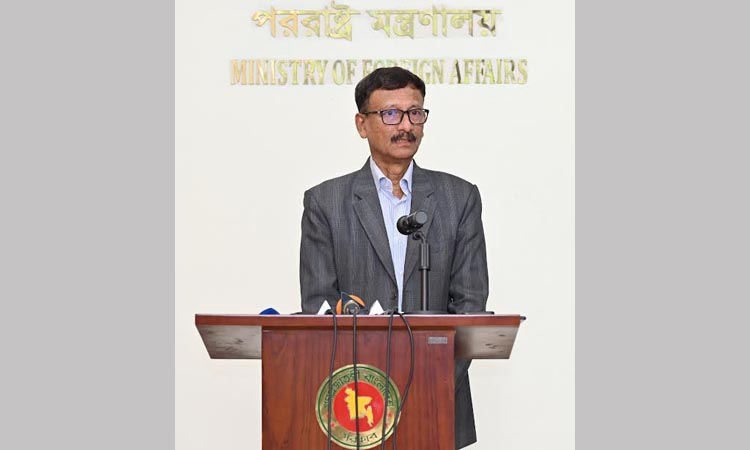Diplomatic Correspondent: Foreign Affairs Adviser Md Touhid Hossain on Sunday said that the foreign ministry would put efforts to bring back ousted prime minister Sheikh Hasina from India if required by the country’s legal system.
“It is better not to speculate. There are legal processes. If our legal system wants, we will definitely try (to bring her back),” Hossain told reporters at the foreign ministry this afternoon.
When asked about Hasina’s current status in India, he recommended that such questions be directed to Indian authorities.
Following the interim government’s decision to revoke all diplomatic passports, questions have arisen about Hasina’s stay in India and the possibility of her extradition.
Earlier, the Indian Ministry of External Affairs confirmed that Hasina was allowed entry into India on short notice.
Pointing that there is an extradition agreement between Bangladesh and India, Touhid said, if the legal system and courts in Bangladesh raise concerns, the government would pursue her return.
Among SAARC member states, India has extradition treaties with Nepal, Bhutan and Bangladesh, and an extradition arrangement with Sri Lanka.
Sheikh Hasina is facing multiple charges, including allegations of involvement in murders during the recent massacre.
Regarding the signed Memoranda of Understanding (MoUs) with India, including one in the railway sector, Touhid clarified that MoUs are not legally binding and can be reviewed to ensure that Bangladesh’s interests are protected.
The adviser explained that MoUs differ from agreements, allowing flexibility to evaluate whether Bangladesh’s interests are upheld.
However, he said that ongoing projects with India would continue as planned.
In response to the recent comments by India’s External Affairs Minister S Jaishankar about Bangladesh, Touhid remarked, “He (Jaishankar) spoke positively about renewed relations with Bangladesh.”
On the situation with Myanmar, Touhid noted that Bangladesh has been maintaining high vigilance at the frontier to prevent further influxes of Rohingyas.






